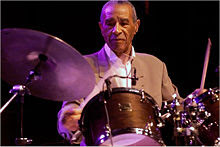Stapleton on Moore (3)
T. S. Eliot, when persuading Moore to republish Observations with the addition of a small number of new poems, offered a useful guideline on deciding what makes up a "book" of poetry: The point at which one has "enough" for a book (of verse) is not a quantitative matter alone: it comes at the end of a paragraph, or chapter, however short; it's a question of form. One only has not enough, when one feels that the poems written require the cooperation of certain poems not yet written, in order to be themselves quite. The paragraph, or chapter, metaphor suggests that a book of verse should have a completed shape, not necessarily a narrative arc, but whatever is proposed at the beginning of the paragraph or chapter would have been developed to some satisfying (Moore would have said, joyful) conclusion. Demanding as the metaphor may sound, it is also liberating, for a paragraph or a chapter is not the whole book, is not the whole work of a lifetime. There is time and...



